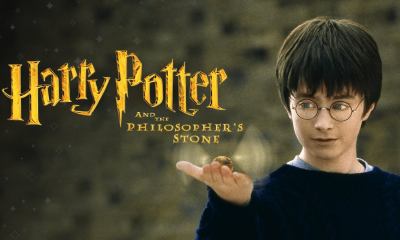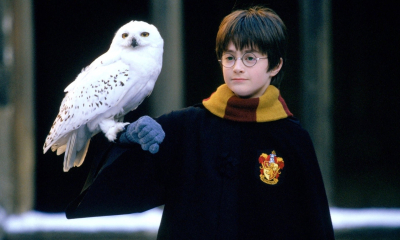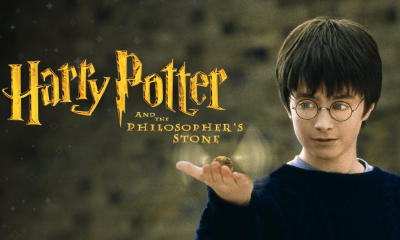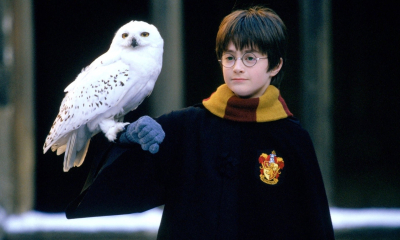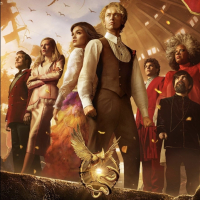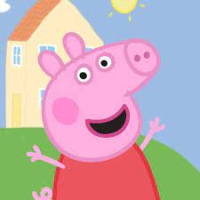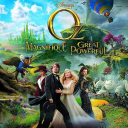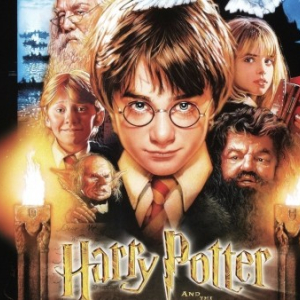
Harry Potter and the Philosopher's Stone Review
Harry Potter and the Philosopher’s Stone: A Magical Journey Begins
Released in 2001, Harry Potter and the Philosopher’s Stone brought to life J.K. Rowling's enchanting world of wizards, magic, and adventure. Directed by Chris Columbus, the film is the first installment in what would become one of the most successful franchises in cinematic history. For fans of the books and newcomers alike, the movie offered a rich, visual experience that captured the heart of the beloved novel while setting the stage for an epic series that would span a decade.
Faithful Adaptation of a Beloved Classic
One of the standout aspects of Harry Potter and the Philosopher's Stone is how faithful it is to its source material. Many adaptations of books often take creative liberties, but this movie largely stays true to the pages of Rowling’s first novel. Fans of the book were thrilled to see iconic scenes brought to life on the big screen, from Harry's initial discovery that he is a wizard to his first steps into the magical world through Diagon Alley.
The film begins with young Harry Potter (Daniel Radcliffe) living in oppressive conditions with his neglectful aunt and uncle, the Dursleys. His life changes dramatically on his 11th birthday when a giant named Hagrid (Robbie Coltrane) reveals that Harry is no ordinary boy – he is a wizard and has been accepted into the prestigious Hogwarts School of Witchcraft and Wizardry. This pivotal moment marks the beginning of Harry’s journey, both in discovering his true identity and in facing the destiny that awaits him.
Magical World-Building
One of the film’s biggest achievements is its ability to create a fully immersive magical world. From the very first scene, where Dumbledore (Richard Harris) arrives at Privet Drive under the cover of night, the tone is set for a film rich in atmosphere and wonder. The set design, costumes, and visual effects work in harmony to transport viewers into a place where magic feels both extraordinary and believable.
The attention to detail is remarkable. Diagon Alley, for example, is brimming with life, filled with odd shops, flying broomsticks, and enchanted objects. Hogwarts School itself is the ultimate dream for any child with its moving staircases, talking portraits, and secret passages. Every corner of the world is carefully crafted, helping to establish the magical realism that defines the franchise.
Stellar Casting Choices
One of the reasons why Harry Potter and the Philosopher’s Stone works so well is due to its stellar cast. Daniel Radcliffe, Rupert Grint, and Emma Watson, who play Harry, Ron Weasley, and Hermione Granger, respectively, were relatively unknown at the time, but their performances won over audiences instantly. Radcliffe's portrayal of Harry carries a balance of innocence and curiosity, while Grint’s comedic timing as Ron brings much-needed levity to the story. Watson’s portrayal of Hermione is strong and determined, perfectly capturing the essence of the brainy and brave witch.
Veteran British actors also lend their gravitas to the film. Richard Harris as Albus Dumbledore is wise and gentle, while Maggie Smith as Professor McGonagall commands respect with her sharp wit. Alan Rickman as Severus Snape steals many scenes with his icy demeanor and cryptic presence, hinting at the complexities of his character that will unfold in later films.
Robbie Coltrane’s Hagrid is a particular highlight, with his larger-than-life personality and a heart full of warmth. His connection with Harry helps ground the film’s more fantastical elements in genuine emotion. Each actor seems perfectly suited for their role, which is critical in making the world of Harry Potter believable.
A Journey of Friendship and Discovery
At its core, Harry Potter and the Philosopher’s Stone is not just a fantasy film filled with magical creatures and spells. It’s a story about friendship, courage, and the search for identity. Harry, who has grown up in isolation, quickly finds a sense of belonging at Hogwarts. His bond with Ron and Hermione becomes central to his journey, and the trio's dynamic is a joy to watch as they navigate the challenges of their first year at the school.
The film also begins to explore deeper themes, such as the battle between good and evil, the importance of choices, and the power of love. While these themes are only touched upon in the first film, they lay the groundwork for the more complex moral questions that will arise in future installments.
Visual Effects and Cinematic Magic
For a film made in the early 2000s, the visual effects in Harry Potter and the Philosopher’s Stone hold up remarkably well. From the spell-casting sequences to the Quidditch match, the use of CGI is both impressive and necessary to bring the magical world to life. The Quidditch match, in particular, is a thrilling sequence, where broomsticks soar through the sky, and players dodge enchanted balls in a sport unlike anything seen in the Muggle world.
The film’s cinematography by John Seale captures both the grandeur and intimacy of the magical world. Sweeping shots of the Hogwarts castle, nestled among mountains and lakes, contrast beautifully with the quieter moments of Harry discovering his new life. The score by John Williams is another high point, with the iconic Hedwig’s Theme becoming synonymous with the Harry Potter series. The music elevates the emotional and magical moments, making them even more memorable.
A Strong Start to a Legendary Franchise
Harry Potter and the Philosopher’s Stone is a film that succeeds on many levels. It not only introduces viewers to a magical world but does so with heart, excitement, and a sense of wonder. While it may be considered a children’s film, the universal themes of friendship, bravery, and the power of love make it appealing to audiences of all ages.
For fans of the book, it serves as a faithful adaptation that respects the source material, while for newcomers, it offers a captivating adventure filled with colorful characters and imaginative storytelling. The film sets the stage for the darker, more complex narratives that will follow in subsequent installments, but it retains a sense of innocence and joy that is unique to the early stages of Harry’s journey.
In conclusion, Harry Potter and the Philosopher’s Stone is a timeless introduction to one of the most beloved cinematic universes. Its charm, strong performances, and magical world-building make it a must-watch, not just for fans of the books, but for anyone who appreciates a well-crafted fantasy adventure. Even over two decades after its release, the film remains as enchanting as ever, inviting viewers to step into a world where magic is real, and the impossible becomes possible.
Screenshots
